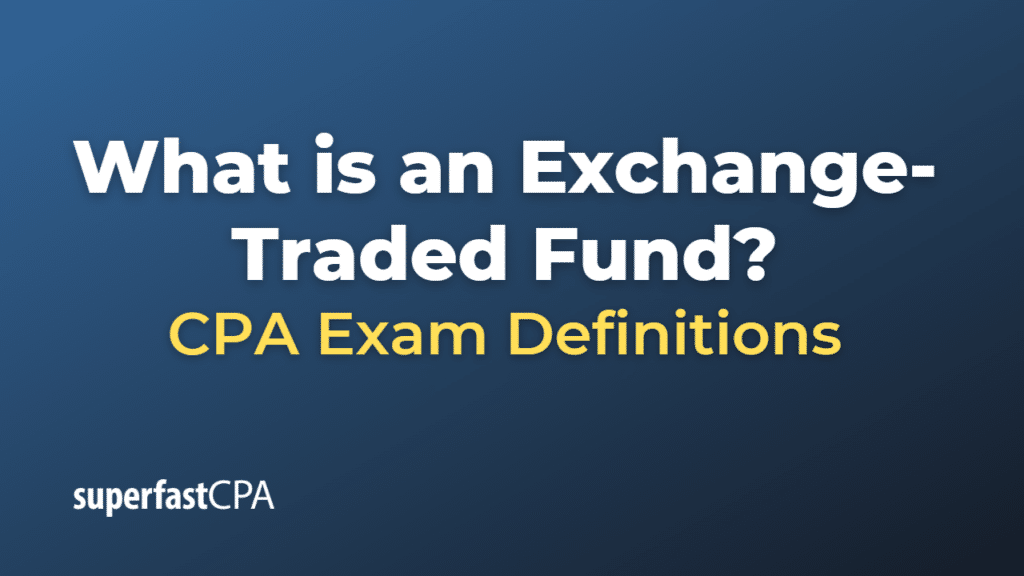Exchange-Traded Fund
An Exchange-Traded Fund, commonly known as an ETF, is a type of investment fund and exchange-traded product that is traded on a stock exchange.
ETFs are similar to mutual funds in that they represent a collection, or “basket”, of individual securities such as stocks, bonds, or commodities. However, unlike mutual funds, ETFs can be bought and sold throughout the trading day like individual stocks, at prices that change throughout the day.
The structure of ETFs allows for more flexibility for the investor, as they can be bought and sold at any point during the trading day at market prices. Mutual funds, on the other hand, are only bought and sold at the end of the trading day at the net asset value (NAV) price.
ETFs offer a way for investors to diversify their portfolios without having to purchase each individual security. They can be used to gain exposure to a wide variety of markets and asset classes, from broad market indices to specific sectors or regions, to commodities or bonds.
Moreover, ETFs are often lauded for their tax efficiency due to the “in-kind” creation and redemption process, which helps limit the capital gains distributions that investors need to report for tax purposes.
Example of an Exchange-Traded Fund
Let’s take a commonly known ETF as an example: the SPDR S&P 500 ETF (ticker symbol: SPY).
The SPDR S&P 500 ETF is designed to track the S&P 500 Index, which is composed of 500 of the largest companies listed on U.S. stock exchanges. When you buy a share of SPY, you’re effectively buying a small piece of all 500 companies in the S&P 500.
Let’s say you believe the U.S. stock market, as represented by the S&P 500, is going to do well over the next year, but you don’t want to pick individual stocks. Instead, you decide to buy shares of the SPY ETF. By doing so, you gain diversified exposure to the U.S. stock market. If the S&P 500 goes up, the value of your SPY ETF shares will generally go up as well. Conversely, if the S&P 500 goes down, the value of your SPY ETF shares will generally decrease.
Remember, as with all investments, buying an ETF involves risk. The value of the ETF can go down, potentially resulting in losses. It’s always important to understand the underlying assets of the ETF and consider your own risk tolerance and investment goals before investing.













